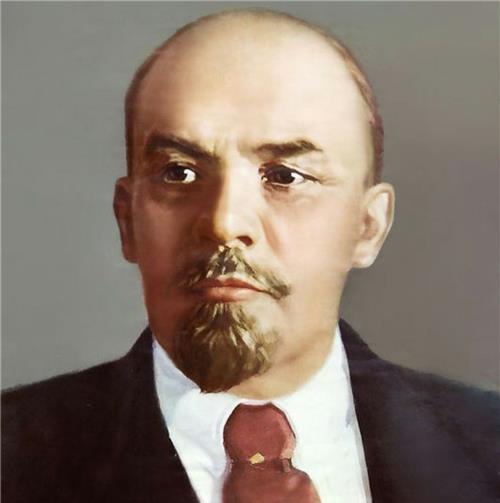As the saying goes, "Different ways do not conspire." Someone once used this phrase to describe the relationship between Lenin and Stalin. Born on December 18, 1878, Stalin is recognized by the Russian public as one of the "greatest Russians." In front of him were only Pushkinyen, Peter the Great and Lenin.

Although lenin and Stalin are revered and remembered by the Russian people, the relationship between the two leaders does not seem to be as harmonious as the people think. Even on Lenin's deathbed, he was strongly opposed to Stalin's succession. So what makes a once-intimate partner intolerable? Born on April 22, 1870, Lenin was one of the main founders of the Soviet Union.
Not only that, but Lenin risked his life to lead the October Revolution. It can even be said that Lenin would not have Soviet Russia and the Soviets. After systematically studying Marxism, he combined it with the reality of Russia and pioneered the creation of a completely new social system. So there are a lot of Russians who will be the spiritual leader of the zero.
Lenin was indeed a very capable man, able to govern a great country in an orderly manner. But Lenin also always had a very distressing problem, that is, the future successor of the country. In fact, many people at that time, including Lenin himself, were very optimistic about Stalin. Because Stalin also played a very crucial role in the October Revolution, Lenin attached great importance to him.
But as the two spent more time together, Zero discovered some of Stalin's Achilles heels. That's rude violence. Perhaps in revolutionary times, violence as a means of success is understandable. But in peacetime, if a leader's character is violent, coupled with absolute power in his hands, it is bound to bring unimaginable disasters to the country.
As early as 1918, when the civil war broke out in Soviet Russia, Stalin was sent to the Tsaritsyn region to collect grain because he was good at using powerful means. It was also from that time that Stalin's prestige among the soldiers of the army grew day by day. Not only that, but he also disobeyed the resolutions of his superiors many times and resolutely executed many counter-revolutionaries. In May 1919, the newly married Stalin was transferred back to Petrograd.
He also touched some deserters with the same cruel means. However, at that time, the relationship between Stalin and Lenin was relatively harmonious. It is no exaggeration to say that Lenin also regarded Stalin as a confidant. But when Lenin's health deteriorated, after much observation and consideration, he decided to kick Stalin out of the list of candidates.
He even told other government officials directly about his ideas, and wanted to remove Stalin from his current post as general secretary of the party. But this completely infuriated Stalin, and the insults poured into Lenin like a flood. In 1924, Lenin left the world forever, and Stalin succeeded him by absolute superiority. He had launched a brutal political purge campaign, and had also formulated three five-year plans for the Soviet Union to promote the country's development quickly and efficiently. I don't know how Lenin, who was buried underground, would feel if he knew this?